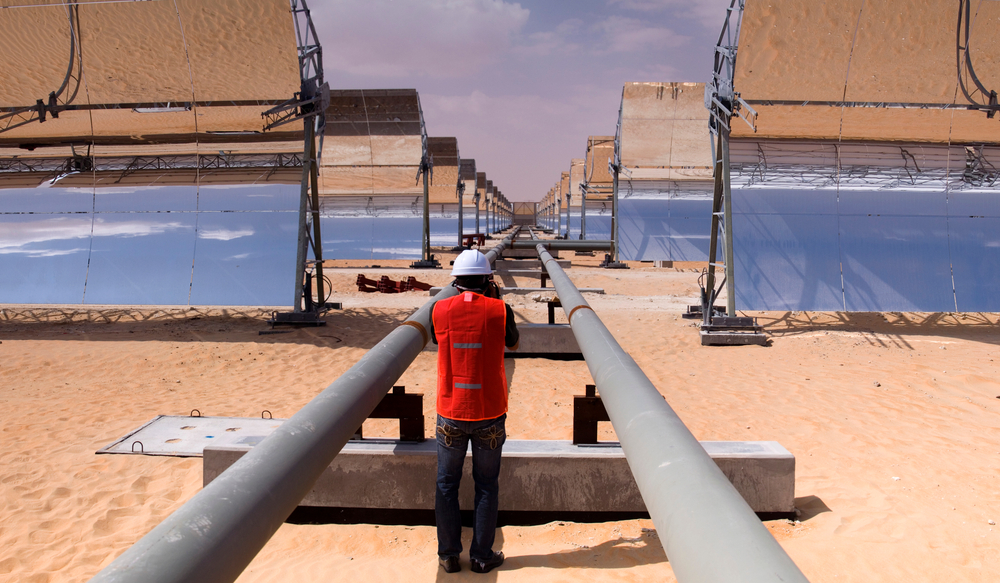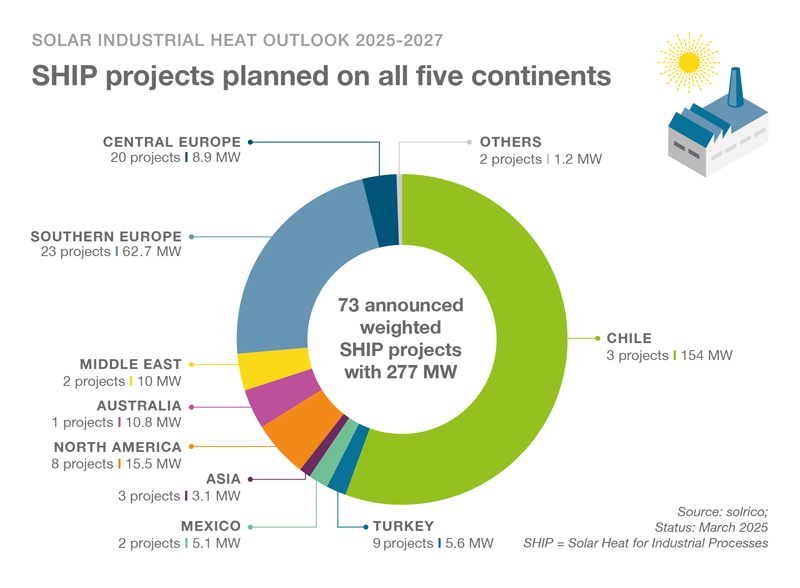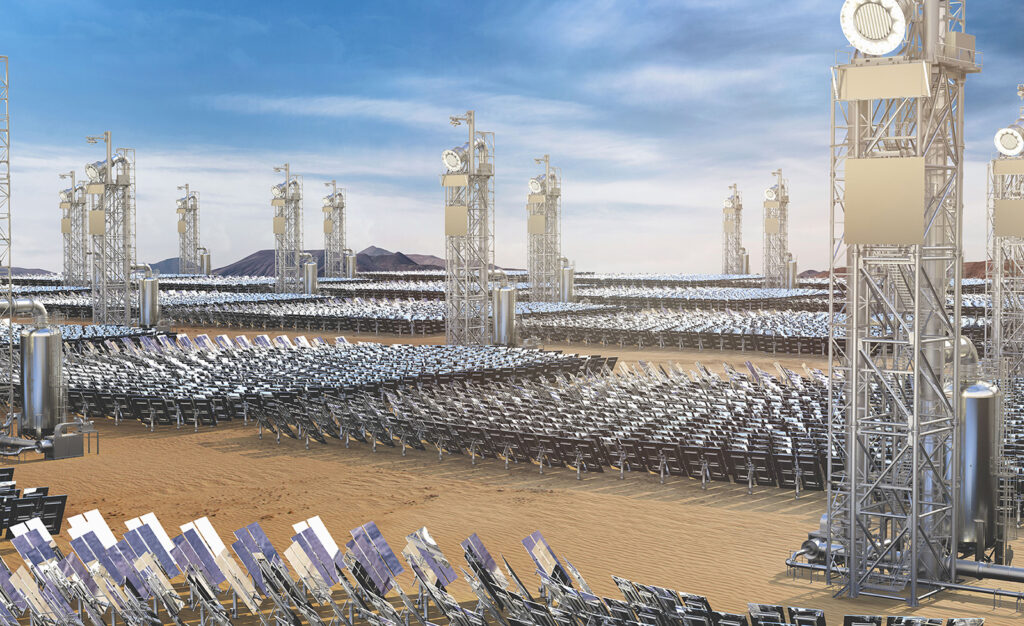REBRANDING GREEN ENERGY

Sach336699/Shutterstock
Reporting from a recent IEA energy security conference in London, Cipher’s Anca Gurzu writes that, “At a time of waning climate action and volatile geopolitics, renewable power sources like wind and solar are rebranding from planet-saving, emissions-reducing clean technologies to must-haves for energy security and peace-of-mind.”
The why is changing
Gurzu quotes European Commission President Ursula von der Leyen, speaking at the London conference about how the EU reduced its dependency on Russian fossil fuels by accelerating the roll-out of renewables: “In the medium term, this is the best means to ensure energy security.”
Von der Leyen’s remarks were echoed by Ed Miliband, the United Kingdom’s secretary of state for energy and climate change, who stated, “Our vision of low-carbon power goes well beyond the climate imperative — important as that is. Homegrown low-carbon power is our nationally chosen route to energy security.”
The math has changed
It helps that the economics of renewables are increasingly compelling. Miliband noted that the cost of solar power globally has fallen 90% since 2010 and the cost of offshore wind more than 60%. Bruce Douglas, CEO of the Global Renewables Alliance, concurred, saying that, “The economics have become a real driver of renewables deployment beyond emissions reductions.”
Risks remain
Gurzu cautions, “Despite momentum around the security theme, renewables do come with their own challenges as they take on a bigger share of the energy system.”
For example, at the time of the massive blackout in Spain and Portugal at the end of April, renewables made up about 70% of Spain’s electricity supplies. Some people accused renewables of being responsible, and the true cause is still unknown.
She points out that renewables also face potential vulnerability with their manufacturing origins: “The supply chains for manufacturing renewable technologies like solar panels and wind turbines are overwhelmingly dependent on just one country — China.” In addition, the IEA has identified China’s control of the minerals refining industry as an emerging energy security risk.
Read more here.
ROUND-THE-CLOCK CLEAN CLEAN ELECTRICITY AND HEAT
400kWe 247Solar Plants deployed at scale
247Solar Plants™ bridge the gap between conventional wind and solar and the need for round-the-clock utility power and industrial-grade heat. 247Solar Plants store the sun’s energy as heat instead of electricity, for 18 hours or more, at much less than the cost of batteries. No generators are required, and 247Solar’s turbines can also burn a variety of fuels, including hydrogen, to ensure 24/7/365 dispatchability.
Extensive Applications
On-grid or off-grid, 247Solar Plants offer a 24/7 alternative to fossil fuels for a broad range of applications:
- CHP: 24/7 low-carbon Combined Heat & Power for industry
- Ultra Heat: Each 247Solar Plant can provide up to 1,500,000 Btu/hr. of heat at temperatures up 1000℃/1800℉ for industrial processes such as cement, glass, steel making, or minerals processing
- Microgrids: Always-on, emissions-free electricity and heat for islands, mines, communities, facilities
- 24/7 baseload power: 24/7 solar electricity, especially for emerging economies
- Green Hydrogen: 24/7 solar electricity and heat to power electrolysis around the clock
- Green Desalination: 24/7 solar electricity and heat to purify water around the clock
REPORT: CONCENTRATED SOLAR POWER CREATES JOBS

Michael Xiaos/Shutterstock
A series of reports from the International Renewable Energy Agency examines how renewable energy projects create jobs and how countries can maximize these benefits by anticipating their needs and building on existing skills and resources.
IRENA’s latest report highlights the job potential of concentrated solar power (CSP). The analysis shows that a 100 MW CSP plant with 10-hour thermal storage can generate around 1.16 million person-days of work, distributed across the value chain with some of these segments making major contributions, such as engineering, procurement, construction (46%), and operations and maintenance (42%).
The authors note that many of these roles already exist in traditional power sectors, so this technology presents a major opportunity to transition fossil fuel workers into renewable energy jobs through training and certification programs. Even in countries without domestic CSP manufacturing, significant employment can be created in other parts of the value chain.
We don’t mind pointing out that all the components in 247Solar Solutions are factory produced, and most can be manufactured in local markets.
Download the IRENA report here.
SOLAR HEAT FOR INDUSTRY EXPANDS WORLDWIDE
 Solar process heat (SHIP) is spreading worldwide, according to a new survey published on solarthermalworld.com.
Solar process heat (SHIP) is spreading worldwide, according to a new survey published on solarthermalworld.com.
The researchers note that projects are currently under construction or in planning on all five continents. The largest number of projects are in Europe, while Chile is the leader by capacity based on a few large mining installations. The survey indicates that substantial new capacity will also be added in North America, Australia and the Middle East.
The survey also found that heat delivery contracts have become the dominating business model for the SHIP industry, with 90 % of the projected capacity to be based on PPAs. The survey found that large SHIP projects are more likely to be built by energy service companies, while EPC contracts are generally concluded with customers for smaller projects.
The food industry was found to be the leading sector for adopting solar process heat. Agriculture occupies a distant second place, followed by the chemical/pharmaceutical and beverage sectors.
Read more.
FOLLOW & JOIN 247Solar
Contact: info@247solar.com
